Hydrogen-powered aviation is gaining altitude in Australia with two new industrial collaborations formed to progress production and deployment of hydrogen-electric powertrains. The Hydrogen Flight Alliance (HFA), a nine-partner consortium in the state of Queensland, is targeting 2026 for the nation’s first hydrogen-electric commercial flight, a 70-minute journey from the state capital, Brisbane, to the regional industrial centre of Gladstone. The flight will be operated with a Beech 1900D commuter plane, converted to hydrogen power by start-up manufacturer Stralis Aircraft and operated by regional airline Skytrans, both members of the HFA. Additionally, Sydney-based Dovetail Electric Aviation has announced a partnership with Korea’s HTWO to test a hydrogen-electric powertrain for regional aircraft, with a view to commencing test flights as early as next year.
The Hydrogen Flight Alliance brings together industrial and academic partners to create a comprehensive ecosystem for hydrogen-powered aircraft. As well as Stralis Aircraft and Skytrans, its members are Brisbane and Gladstone airports, hydrogen production and distribution specialists BOC, Australia’s H2 Energy Company, specialist training organisation Aviation Australia, and the Griffith and Central Queensland universities. The 433-kilometre route between Brisbane and Gladstone has been chosen for the group’s inaugural flight as green hydrogen projects are already well-advanced in both locations.
The conversion by Stralis of a Beech 1900D, to be redesignated as a Stralis B1900D-HE, will be a key milestone not just for zero-emission flight in Australia, but also for the company’s own plans to develop an all-new 50-seat hydrogen-electric aircraft for entry into service by 2030. Stralis will begin flight tests in south-east Queensland early next year, using a six-seat Beechcraft Bonanza aircraft converted to hydrogen-electric power, before retrofitting a 1900D to the company’s Hydrogen Electric Propulsion System (HEPS) and liquid hydrogen storage tank.
The company plans to obtain supplemental type certificates from both Australia’s Civil Aviation Safety Authority and the US Federal Aviation Administration for the 15-seat, 800-kilometre range, hydrogen-powered variant to be built in Brisbane. From this programme, Stralis will use data and customer feedback to develop its all-new aircraft, currently designated the SA-1, which is planned to have an operating range of 3,000 km with a maximum payload of 5,000 kilograms, while targeting a 65% reduction in engine maintenance costs compared to turbine-powered planes.
“The Hydrogen Flight Alliance allows us to answer the most common question we hear from airline customers, which is how they will access affordable green hydrogen at airports in future,” said Bob Criner, co-founder and CEO of Stralis Aircraft. “This is not a problem we can solve on our own. It requires industry collaboration.”
Cairns-based Skytrans operates a fleet of five De Havilland Canada Dash 8-100 and five Cessna 208B Grand Caravan aircraft on passenger and freight flights to regional destinations in the far north and south-east regions of Queensland, and to remote island communities in the Torres Strait. “We are proud to be leading the nation in developing its hydrogen industry,” said the airline’s CEO Alan Milne, “and we want to play a leading role in showing that this technology can work in aviation.”
Brisbane Airport, which is targeting net zero emissions by 2025, recently became the first in Australia to achieve a Level 4 Carbon Accreditation from industry body Airports Council International, which acknowledged the commitment of the country’s third-biggest air transport hub to decarbonise its own operations and work with industry partners to reduce theirs through initiatives including the purchase of renewable energy and self-generation through the installation of 18,000 solar panels.
“Brisbane Airport supports the ambition of a zero-emissions aviation future with aircraft that are cleaner, cheaper, and quieter to run,” said Raechel Paris, the airport’s EGM Governance and Sustainability. “With Queensland home to the largest number of regional flights in Australia, Brisbane is the perfect testing ground for zero emissions aircraft.”
Dr Emma Whittlesea, Executive Director of the Climate Ready Initiative at Griffith University, said together with Griffith Aviation and the Centre for Applied Energy Economics and Policy Research, the initiative strengthened the Hydrogen Flight Alliance with teaching, research and policy capability and expertise, while Steve Hall, Dean of the School of Engineering and Technology at Central Queensland University, said future maintenance engineers, pilots and aviation industry managers would benefit from the university’s participation in the HFA.
Coinciding with formation of the new alliance, Euro-Australian company Dovetail Electric Aviation announced a propulsion partnership with HTWO, the hydrogen fuel cell division of Korea’s Hyundai Motor Group, which is already developing or planning hydrogen powertrains for vehicles ranging from forklift units to cars, trucks, buses and trams, and for maritime use and general power generation.
Dovetail is a partnership between Australian tourist airline Sydney Seaplanes and Spanish aerospace company Dante Aeronautical to convert conventionally-powered turbine aircraft to zero emission battery-electric and hydrogen-electric propulsion systems. It is targeting 2025 for certification of a battery-electric Cessna Caravan seaplane and 2026 approvals of hydrogen-electric Beech King Air and Cessna Caravan prototypes, before progressing to conversions of larger, longer-range aircraft including the De Havilland Twin Otter.
Up to 100 aircraft conversions per year are planned at facilities in Australia and Spain, and Dovetail has already secured preliminary orders from UK-based Monte Aircraft Leasing for up to 50 battery-electric and hydrogen-electric conversion kits for Caravan and King Air aircraft, and orders for 10 converted turbine aircraft from Korean short-haul operator Mint.
David Doral, Dovetail’s CEO, said the combination of HTWO’s expertise in fuel cell development and Dovetail’s proprietary aviation technology would deliver “significant advancements” to the aerospace sector and enable Dovetail to mature its electric propulsion system with hydrogen technology. Under the agreement with Hyundai, Dovetail’s Iron Bird powertrain test rig in Australia will be fitted with an HTWO fuel cell system for initial tests, ahead of full-scale trials and a first flight potentially as early as next year.
Since late last year, Dovetail has attracted investments from the Australian regional airline Rex and Spanish carriers Volotea and Air Nostrum, and recently secured a AUD$3 million ($2m) grant from the Australian government to develop, flight test and certify electric aviation technology. In February, the company successfully tested a 250kw electric aviation motor.
“This opportunity will enable us to combine our expertise in aviation with HTWO’s expertise in fuel cell technology to develop innovative solutions for a sustainable future in aviation,” commented Doral.
Image (Brisbane Airport): The Skytrans Stralis B1900D-HE


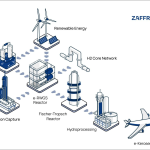
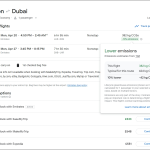
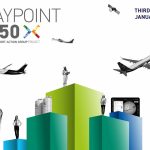
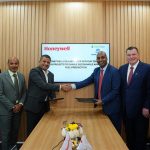

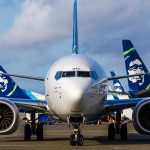
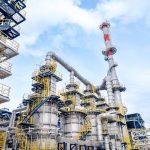



More News & Features
EcoCeres opens new Malaysia production facility as SAF ambition in Asia scales up
PtX fuels have significant Asia-Pacific potential but face many barriers, finds report
Asia-Pacific study reveals pessimistic outlook for SAF uptake by 2030 as Singapore details levy
New Zealand initiatives announced on electric aircraft, hydrogen refuelling and carbon removals
EU states to mobilise 500 million euro support for early-mover eSAF production startups
European Commission announces Sustainable Transport Investment Plan to advance low-and-no-carbon fuels